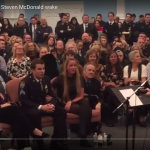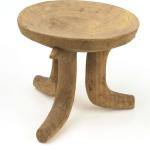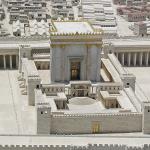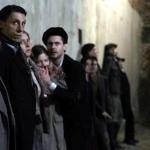The following column was written by The Christophers’ Jerry Costello:
He didn’t like the “hero” label, and he thought “the greatest generation” phrase is tossed around a little too much. But Joseph Vaghi Jr. qualified as a genuine D-Day hero when he served as the Navy’s youngest beachmaster in France, and “the greatest generation” tag fit him like a glove.
Vaghi, of Bethesda, Md., died last year at 92, and the obituary by Mark Zimmermann in the Catholic Standard of Washington paid attention to the role he played on D-Day–which took place on June 6, 1944, 69 years ago this month. As a self-described “traffic cop,” Zimmermann wrote, Vaghi, the first one off his landing craft, “held a map and guided troops ashore, through mine fields, mortar blasts and machine gun fire.”
But the obituary told much, much more. It described the family in which Vaghi was raised, one of 10 children, and the way in which his Catholic faith was central to his life. (In an earlier interview, Vaghi had recalled how all 10 youngsters would line up and then march off to attend Mass.) In a eulogy, Dr. Vincent Vaghi, one of his four sons, described the way his father’s faith played such an integral part in his D-Day heroics: “My father had everyone kneel down in their landing craft and say the Our Father just prior to disembarking.”
Vaghi himself had no qualms about his chances. In that earlier interview, chuckling over a shipmate’s description of him charging onto the beach like a football player, he said, “When I went into Normandy, I had absolutely no fear, because I knew God would look after me. If he wanted me, that would be it.”
Another son, Msgr. Peter Vaghi, pastor of the Church of the Little Flower in Bethesda, celebrated the funeral Mass. He said his father’s Italian immigrant parents had infused the Catholic faith into their son by their example, and that he trusted in God’s will “every day of his life.”
An architect, Joseph Vaghi was a familiar presence to Catholics in the Washington area. He and his late wife, the former Agnes Crivella, were active members of the John Carroll Society, had chaired Washington’s annual Cardinal’s Appeal, and received numerous awards for their years of service to the Church.
But the rites kept harking back to his deeds of heroism all those years ago–on the D-Day that would stand as the key to the Allies’ victory over Germany in World War II–down to the playing of the Navy Hymn at the final commendation. That service was led by Archbishop Timothy P. Broglio, the Archbishop for the U.S. Military Services.
Vaghi still kept and treasured the map he had held on Omaha Beach in 1944, and often thought of and prayed for the 23 men from his unit who gave their lives there. His own heroics had earned him the Bronze Star, and just last year he received France’s Legion of Honor Chevalier.
And even though he didn’t think too much of that label–“The Greatest Generation”–he thought that all men and women who had donned the uniform and fought for their country, in the past and still today, deserve our respect.
“We just went in,” he said, “and did what we had to do.”
















